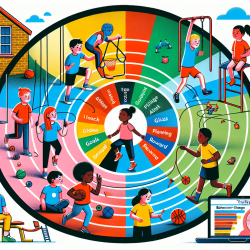The field of pathological linguistics has garnered significant attention for its potential to enhance children's cognitive education. A recent study titled Research on Children's Cognitive Education Based on Pathological Linguistics has established an intervention system for children's cognition-language assessment and cognitive education. This blog aims to provide practitioners with actionable insights from the study to improve their skills and outcomes for children.
Key Findings and Implications
The study focused on the six linguistic dimensions: phonology, productivity, fluency, grammar, semantics, and logic. By analyzing a large corpus of children's speech data, the researchers identified that fluency, pronunciation, and productivity are the top contributors to screening for language disorders, with contribution rates of 29.6%, 25.7%, and 19.3%, respectively.
Implementing the Findings
Practitioners can leverage these insights to prioritize their assessments and interventions:
- Fluency: Focus on exercises that enhance speech fluency, such as repetition drills and paced reading activities.
- Pronunciation: Incorporate phonetic training and articulation exercises to improve pronunciation.
- Productivity: Encourage expressive language through storytelling and open-ended questions.
Early Intervention
The study underscores the importance of early intervention, particularly before the age of 3, for children with language disabilities. Early intervention significantly benefits language development, aligning with previous research in the field.
Building a Comprehensive Cognitive Education System
The research has led to the development of a cognitive-language assessment database and an intervention system composed of six modules: user, assessment, scale, resources, teaching, and data. This system allows for a comprehensive evaluation and targeted intervention, enhancing the cognitive and language abilities of children.
Encouraging Further Research
While the study provides a robust framework, further research is encouraged to refine and expand the cognitive education system. Practitioners are urged to contribute to this growing body of knowledge by sharing their experiences and findings.
To read the original research paper, please follow this link: Research on Children's Cognitive Education Based on Pathological Linguistics.










